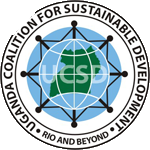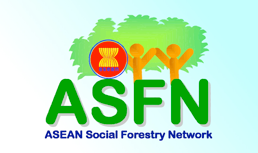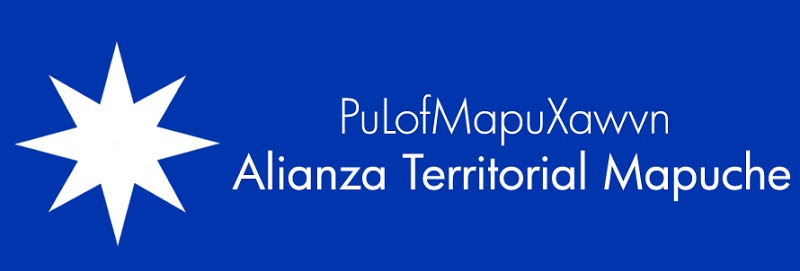
Topics and Regions
Carlos joined the Land Portal as Data Officer in January 2016. He is a Linked Open Data specialist with wide knowledge and expertise in semantic web technologies, computer science, software design and development, human computer interaction, productivity and networking. He has previously worked for Previously the Fundación CTIC as a researcher of the Semantic Technologies Unit, and has taken part in several national and European R&D projects and initiatives. He holds a Masters of Science in Engineering and Computing Science from the University of Oviedo.
Details
Affiliation:
Location
Contributions
Displaying 41 - 50 of 349Uganda Coalition for Sustainable Development
The UCSD is a network or more than 40 NGOs dedicated to coordinate advocacy and lobby work around issues and commitments made by world governments towards sustainable development, inspired by the Rio+ 10 project (Civil Society project for preparation of the Johannesburg Summit of 2002).
The UCSD was registered in November 2004 as an NGO (Reg. No. S5914/5345). Since its inception in 2001, UCSD has actively participated in Uganda Civil Society preparations for the Johannesburg Summit on sustainable development;
ASEAN Social Forestry Network
The ASEAN Social Forestry Network (ASFN) is a government-driven social forestry network that links government forestry policy-makers directly with members of the civil society, research organizations, academia, the private sectors and experts of related fields,- all sharing the common grounds to vision the growth of social forestry in all ASEAN Member Countries.
Launched at the ASEAN Senior Officials on Forestry (ASOF) in August 2005, ASFN is the first and largest government-driven social forestry network in Southeast Asia.
The BonaRes metadata schema for geospatial soil-agricultural research data – Merging INSPIRE and DataCite metadata schemes
A spatial data infrastructure (SDI) for the upload and provision of soil-agricultural research data in Germany was developed and launched in 2017. The precondition for the new SDI were to be compliant with the European initiative for spatial information (INSPIRE), to consider FAIR data principles, to be interoperable with other disciplinary national and international SDIs and to support dataset registrations with digital object identifiers (DOI). To meet these requirements, the new SDI had to support both the INSPIRE and DataCite metadata standards.
Managing long-term experiment data: a repository for soil and agricultural research
Agricultural long-term experiments (LTEs) are most valuable research infrastructures to reveal the effects of agricultural measures in the long run. However, information about existing LTEs is scattered and the data are often not easy to access. A repository for LTE data and metadata can ensure that a particular LTE can be found easily and access to the data is simplified.
BonaRes Centre for Soil Research
The central motivation of the BonaRes Centre (Helmholtz-Zentrum für Umweltforschung GmbH – UFZ) is the transfer of existing and newly generated knowledge about soil functions into scientifically based decision support tools for soil management in the context of a sustainable bioeconomy. In future, it should be possible to make decisions on soil management options based on current scientific knowledge. This should protect soils with their diverse functions and steer their sustainable use as a bio-economic production factor.
Notre Dame Global Adaptation Initiative
There’s a growing, global movement to make human communities and ecosystems more resilient to climate extreme impacts. For the Notre Dame Global Adaptation Initiative (ND-GAIN), it’s a movement rooted in the power of data, grounded in science-based evidence and driven by a mission of “Science Serving Society.”
EconStor
EconStor is a publication server for scholarly economic literature, provided as a non-commercial public service by the ZBW. The full texts collected here (mostly working papers, but also journal articles, conference proceedings, etc.) are all freely accessible according to the principles of Open Access. Authors and editors can also submit papers to EconStor free of charge.
Sistema de la Integración Centroamericana
The Central American Integration System (Spanish: Sistema de la Integración Centroamericana, or SICA) has been the economic and political organization of Central American states since February 1, 1993. On December 13, 1991, the ODECA countries (Spanish: Organización de Estados Centroamericanos) signed the Protocol of Tegucigalpa, extending earlier cooperation for regional peace, political freedom, democracy and economic development. SICA's General Secretariat is in El Salvador.
desco, Centro de Estudios y Promoción del Desarrollo
DESCO, Centro de Estudios y Promoción del Desarrollo, is a non-governmental development institution that has been part of Peruvian civil society for 53 years. It is dedicated to the promotion of social development and the strengthening of the capacities of the less favored sectors of the country. DESCO is defined as a private civil association with public purposes, which is related to popular organizations, social and political actors and State agencies, to contribute to the strengthening of civil society’s capacities and the elaboration of development proposals.
Alianza Territorial Mapuche
The Alianza Territorial Mapuche (PuLofMapuXawvn ) is one of the grassroots organizations based in Gulu Mapu, the Chilean side of Wallmapu. The ATM’s core mission is the full defence of the Mapuche’s inherent rights, especially concerning the protection of their territory and natural environment. ATM is similar to an NGO in the sense that the organization is not registered under Chilean law. The ATM covers different territories of the Mapuche Nation and is involved in several communities that feel they represent the spirit of the organization.











